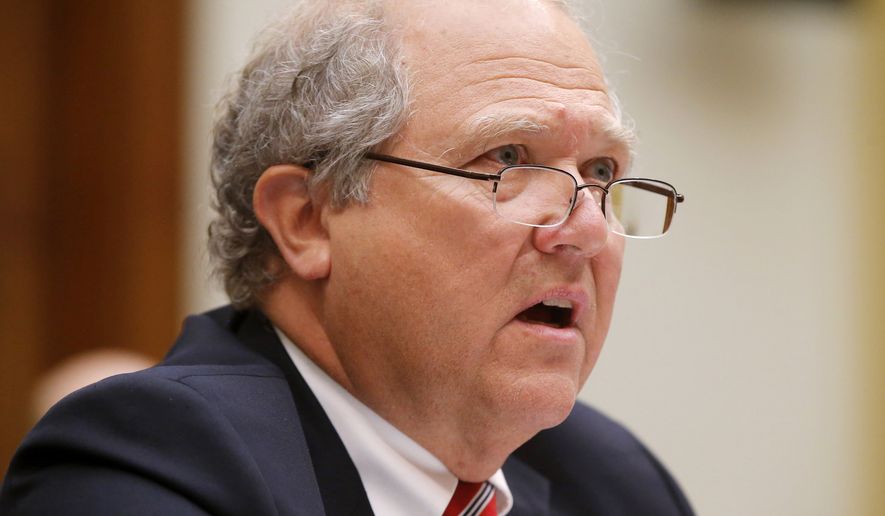The same Defense Department office that spent $43 million on a gas station in Afghanistan also spent 20 percent of the rest of its budget to house workers and visitors at luxurious private villas, rather than have them stay on military bases for free to save “tens of millions of dollars,” investigators have concluded.
The Task Force for Business and Stability Operations defended the villas as a way to entice investors into the fragile country, and said they were needed to prove that foreigners could live and operate in Afghanistan without being dependent on the U.S. military.
But the Special Inspector General for Afghanistan Reconstruction said in a letter released Thursday that the task force was unable to show a return on the $150 million it spent on villas in Kabul, Herat, Mazar-i-Sharif and Jalalabad.
“If TFBSO employees had instead lived at DOD facilities in Afghanistan, where housing, security, and food service are routinely provided at little or no extra charge to DOD organizations, it appears the taxpayers would have saved tens of millions of dollars,” Inspector General John F. Sopko said in a letter to Defense Secretary Ashton Carter.
The villas are the latest black mark for the task force, which spent $800 million before being shuttered by the Pentagon, but which is now facing a series of inquiries, including criminal probes.
Mr. Sopko last month reported that the task force spent $43 million on a natural gas fueling station intended to prove the country could sustain a market for vehicles that ran on natural gas. But the station could have been built for just $500,000, investigators concluded, and the project turned out to be a major bungle since the cost of retrofitting cars to run on natural gas was beyond the means of almost all Afghan citizens.
Those failures have drawn particular attention to the task force, and Mr. Sopko is conducting a criminal investigation, according to Sen. Chuck Grassley, an Iowa Republican who has also taken an interest in the case.
Setting up the villas in Afghanistan required the task force to duplicate most of the services the Department of Defense already provided. The task force paid tens of millions of dollars for private contractors for regular security and to have rapid-response combat teams on call, and to collect and share intelligence on potential threats.
The contractors also ran basic operations at the villas, and had to meet specific accommodation requests: Meals that were “at least 3 stars” in quality; flat-screen televisions of at least 27 inches in size; cultural advisers and translators on call; and on-site laundry service.
A RAND Corporation draft report on the task force, which investigators obtained, found the villas were supposed to give task force employees and investors better freedom of movement in Afghanistan, but created “friction” with the State Department and other government agencies. Even the task force’s supporters said it needed “more active oversight,” the draft report concluded.
Mr. Sopko sent his letter to Mr. Carter last week, requesting to know who authorized the private villas and private security, and asking for a list of investors who were invited to use the villas.
The Pentagon acknowledged the letter had been received but didn’t have a public response.
Spokesman Lt. Col. Joe Sowers also declined to comment on allegations that a whistleblower who raised concerns over the task force, Army Col. John C. Hope, is facing internal retaliation. Col. Hope says his performance review is being slow-walked.
“As a matter of policy, we do not comment on individual officer evaluations,” Lt. Col. Sowers said in an email.
Mr. Grassley, an Iowa Republican who is Congress’ top defender of whistleblowers, says he believes the military is singling Col. Hope out for retribution, and has demanded Mr. Carter look into the matter.
The Pentagon has come under fire for not being forthcoming with information about the task force. In a report last month, Mr. Sopko, the inspector general, said the money spent on the natural gas fueling station was far out of proportion for what similar facilities cost.
The Department of Defense told Mr. Sopko it couldn’t answer questions about the fueling station because it had shut down the task force earlier this year, and the people and documents weren’t available.
Mr. Grassley said Mr. Sopko has confirmed to him that there are “several ongoing criminal investigations” related to the task force.
“I expect the Pentagon to cooperate fully with the inspector general and with my office in all inquiries involving the task force,” Mr. Grassley said — though he said given how badly the Pentagon does at auditing its accounts, there’s reason to be skeptical” they’ll cooperate with the criminal investigation.
Mr. Grassley, a senior member of the Senate and chairman of the Judiciary Committee, has asked the Defense Department to give him all task force records beginning in 2009. Mr. Grassley also asked for all records on how the Pentagon has handled the inspector general’s investigation.
• Stephen Dinan can be reached at sdinan@washingtontimes.com.




Please read our comment policy before commenting.